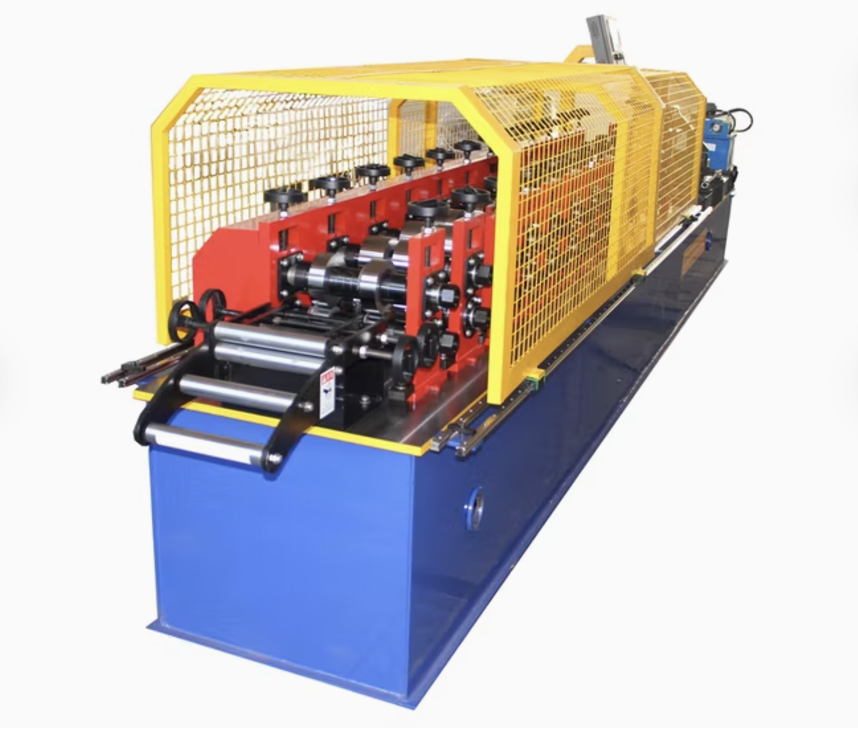To express an interest in this machine please submit the form below.

Not Sure What Machine You Need?
Select Your Profile, We'll Match It
Choose your desired profile drawing, and let Machine Matcher connect you with the best roll forming machine tailored to your needs.
Browse Profiles


A Light Gauge Steel Roll Forming Machine is a precision-engineered equipment designed to create light gauge steel components for construction, such as wall studs, ceiling channels, and truss profiles. These machines are essential in manufacturing lightweight yet durable structures used in residential, commercial, and industrial buildings.
Light gauge steel components are popular in the USA due to their versatility, corrosion resistance, and cost-effectiveness. The roll forming process ensures consistent quality, high precision, and minimal waste, making these machines an integral part of modern construction methods.
1. Roller Materials:
2. Punching and Notching System:
3. Servo Motors:
4. Cutting System:
5. Frame Size and Material:
6. Motors:
7. PLC Control System:
8. Machine Speed:
9. Safety Features:
10. Profile Capabilities:
11. Optional Extras:
Q1. What materials can the machine process?
The machine is designed for light gauge steel, typically galvanized steel, aluminum, and other lightweight metals with thicknesses ranging from 0.4 mm to 1.2 mm.
Q2. Is the machine suitable for custom profiles?
Yes, the machine can be customized to produce various profiles, including studs, tracks, and ceiling channels. Custom tooling and dies are available upon request.
Q3. How long does installation take?
Installation typically takes 2–5 days, depending on the machine complexity and factory setup. On-site training is often included.
Q4. What are the power requirements?
Standard power requirements are 380V/50Hz or 440V/60Hz. Customized options are available to match USA power standards.
Q5. What is the maintenance requirement?
Regular maintenance includes:
Q6. Can the machine be shipped to the USA?
Yes, the machine is designed for export and can be shipped to any location in the USA. Proper packaging ensures safety during transit.
Q7. What is the typical lead time for delivery?
The standard lead time is 8–12 weeks, depending on customization and production schedules.
Q8. Are spare parts readily available?
Yes, spare parts like rollers, dies, and motors are available. Manufacturers often provide a spare parts kit with the machine.
Q9. How does the machine meet safety standards?
The machine complies with CE and UL safety certifications, featuring emergency stop systems, safety guards, and user-friendly controls.
Q10. What support is available post-purchase?
Manufacturers offer remote troubleshooting, on-site training, and annual maintenance contracts to ensure optimal performance.
Copyright 2026 © Machine Matcher.